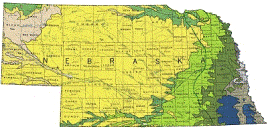United States Geological Survey

United States Geological Survey: Staff Publications
Document Type
Article
Date of this Version
2011
Citation
Geophysical Journal International, 187, 252–272, 2011
Abstract
A meaningful interpretation of geophysical measurements requires an assessment of the space of models that are consistent with the data, rather than just a single, ‘best’ model which does not convey information about parameter uncertainty. For this purpose, a trans-dimensional Bayesian Markov chain Monte Carlo (MCMC) algorithm is developed for assessing frequency domain electromagnetic (FDEM) data acquired from airborne or ground-based systems. By sampling the distribution of models that are consistent with measured data and any prior knowledge, valuable inferences can be made about parameter values such as the likely depth to an interface, the distribution of possible resistivity values as a function of depth and non-unique relationships between parameters. The trans-dimensional aspect of the algorithm allows the number of layers to be a free parameter that is controlled by the data, where models with fewer layers are inherently favoured, which provides a natural measure of parsimony and a significant degree of flexibility in parametrization. The MCMC algorithm is used with synthetic examples to illustrate how the distribution of acceptable models is affected by the choice of prior information, the system geometry and configuration and the uncertainty in the measured system elevation. An airborne FDEM data set that was acquired for the purpose of hydrogeological characterization is also studied. The results compare favourably with traditional least-squares analysis, borehole resistivity and lithology logs from the site, and also provide new information about parameter uncertainty necessary for model assessment.

